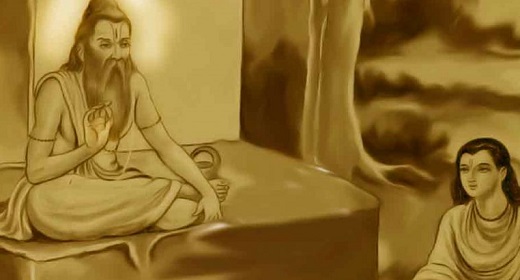by Lillian Firestone: If you dream of finding a great Teacher, a Master, the operative advice is, “get real…”
Great teachers may appear once in a hundred years. Masters require great sacrifice of those willing to follow them … and as we are not prepared to pay the price, it’s best to start exactly where we find ourselves with the help that is within reach. More likely I can find a guide, someone who knows the way but is still in the process of becoming. A useful guide is one who will help me to connect to my authentic self, that self that is connected to God. No shame, no blame, no fear, marks this journey, where every inner movement needs to be seen without judgment.
FINDING
The wise say I can learn from everyone I meet. But exactly what is it that is being learned? What can I glean from some rough lout, some timid or repressed soul, some crazy? Surely they have nothing to teach an educated person like me. But there is no better teacher than the mirror, and every person can be my mirror, reflecting back to me some aspect of myself, particularly when it is something I dislike.
I contain multitudes, as Walt Whitman put it. There is nothing I can see in another that I do not also contain to some degree—cheat, murderer, martyr, hero, and much more. Looking closely I discover that fundamentally we are all alike—all subject to the same passions and hopes, and this touches a feeling of compassion in me that does not otherwise appear.
My deepest guilty secret is gradually revealed to me: I believe that at least in some respect, I am better than everyone else. Only a penetrating view of my inner world dispels this pernicious illusion.
Books are helpful—reading prepares the mind and books are available where a living guide is not to be found. But eventually we need the human connection. A book cannot look back at me and hear my tone of voice. It cannot remind me to release the tension in my shoulders. It does not know when I am ready for the next step.
“SEEK AND YOU SHALL FIND”
Today there is no shortage of leads, as everyone is already into “something” be it Alexander, Hinduism, Buddhism, Sufism, Kabbalism, Christianity or Judaism, Yoga, Pilates, Wicca, vegetarianism, World Peace, or schools of the Fourth Way, and their plethora of imitators. Fortunately, I don’t risk being burned at the stake for trying something new.
I think that I am searching but at the same time I am being sought; the teaching needs to find me. Knowledge must be passed on, and conscious forces help those who seek.
With so many paths beckoning, how am I to choose? It may be easier to eliminate a few dead ends:
Am I somewhat repelled by the proposed teacher? Move on. That small voice inside called intuition, hunch, or conscience is more reliable than any other and needs to be respected. Never follow what your inner voice opposes—new knowledge comes only through consent, and when I hear what is true, an agreement reverberates inside me. It’s as though I always knew … and only just now remembered.
Can you trust the one who proposes to lead?
“Trust me for a mile,” one guide said. “Try for six months and then see if anything has changed,” another proposed. A mile or a month, trust is conditional—a little has to be given at the beginning, and the rest earned. A prominent Israeli scientist spoke glowingly to me of meeting guides of the Fourth Way, an American couple named William and Cora Segal. “What about the Segals made such a strong impression on you?” I asked. He told me, “When Mrs. Segal looked at me, it was the first time in my life that I felt I was seen and not judged.”
Look for impartiality in the guide.
Does the proposed teacher tell you that you are special, or uniquely gifted?
You are not.
We all have a particle of God within.
An appeal to your ego should ring a warning bell that this is not necessarily someone to trust. And meanwhile the landscape of my egotism is exactly what a real guide helps me to see.
Narrow and steep—yet the path opens readily when I hear something that is true. I can follow that truth, even though the lawful opposition of my laziness and my egotism must be expected.
“When the pupil is ready…” someone will put a book into your hands or give you a phone number to call.
Be wary of cults, they are easy to join but hard to leave. A genuine teaching on the contrary may be hard to find and harder to enter, but very easy to walk away from. Are you being courted? Cults seek recruits. Speak to followers who left, not just the ones who stayed: how were they treated? Are they grateful for what they received?
The traditional Asian model of the apprentice who serves the Master body and soul has been gradually abandoned. Instead, a Platonic ideal where the pupil is respected and encouraged to question everything, and accept only what he can verify fits our need. At every moment the pupil must be free to choose. Fear has no place in this relationship—and the guide must be scrupulous not to use the pupil for his personal benefit.
But what about money? Like everything else, the spiritual must be paid for. Rent is due, and gas and electricity aren’t free. But some self-styled teachers demand and get huge sums from hopeful pupils who somehow believe that the more something costs, the more valuable it is. That standard may apply to consumer goods but authentic guides tend to live simply, giving to Caesar only what is Caesar’s.
If a luxurious lifestyle is given as proof of efficacy, you may have cause to question the teacher and the teaching, and your own values.
What about tithing? If a spiritual community supports the helpless and softens the harsh division between those who have too much and those who have not enough, tithing is blessed. But there is no spiritual gain from supporting some charismatic rascal who turns spiritual seekers into his own ATM machine.
Be wary of putting your guide on a pedestal. You may find yourself tearing it down later. Best to accept from the start that your guide is not a Master, but has what you need for your journey. The subjective qualities of the guide are not particularly important, as all have their flaws—she is also a work in progress. Her role is to model the process of collecting attention, of generating presence. She demonstrates that it is possible; she embodies the teaching.
The key word is struggle.
Palpable efforts of presence on the guides’ part illustrate the way for us, show us how it is possible to be, inspire us to try. We may have different guides at various times in our life. At the same time, a deep sense of loyalty arises among those who struggle for spiritual evolution together. The saying “When the pupil is ready the teacher appears” makes room for this conditional aspect. A teacher at one stage is not necessarily needed for the next.
“Look at the moon, not at the finger pointing to it,” the Zen parable says. A guide points the way but is not the Way itself. She cannot carry the pupil on her back, can only propose conditions that will support the aim.
Spiritual teaching is not a one-way process—the guide must also be a pupil. It’s an essential chain through which higher forces can manifest on Earth. Mutual sincerity will make the relationship fruitful. If the guide is not also growing, something is gradually lost: the connection to the higher. His role is to enable you to see, as he does, without judgment. Then your conscience or your soul has room to appear and become the real guide.
BEING A GOOD STUDENT
Once I discover the power of spiritual work, I may become greedy for more exercises, more mantras, more formulas, as if a greater quantity of teaching would help me evolve faster. But enlightenment is an organic process and has its own tempo.
A Chinese monk reported that his greatest fear was that he would hear of a new exercise before he had finished working on his current one. He recognized the trap of spiritual greed. The mind is quick to change, but the feelings resist and defend. A long, patient work is needed.
The world’s greatest guitarist, Andres Segovia, was born with thick hands and stubby fingers. How could he play so exquisitely? he was often asked.
“Inside me I have a teacher,” he answered, “and the teacher says, “Andres, practice,” and the pupil in me says, “Yes, master.” Socrates taught that man already has all knowledge within him. We never really learn anything new, he explained. Education is remembering.
Remember yourself.
DYING
Inevitably, sooner or later the teacher dies.
We will hear his voice no more.
It is the end of an era.
You, you mourn.
With the spiritual parent gone, you are no longer the child.
What is a pupil to do?
To find another teacher seems necessary, but wait—
Maybe now you do not need more teaching, but more practice.
Buddha (the teacher), Dharma (the teaching), Sangha (the group or community). With the teacher gone the teaching remains, and it is up to the group, the spiritual community, to transmit the knowledge. After a teacher has created a group, his work is done. The group, the sacred community, carries the teaching on.The community becomes the teacher.
The twelve disciples of Christ, the Companions of Mohammed, the Bhikkus of the Buddha all reflect the principle that it is a group that must continue the work of a master, not necessarily a chosen successor.
Together the way forward is found again. We are mirrors for each other.
This is a difficult step. What I am is put to the test.
Our comrades on the path must now supply the force that previously came from the teacher, but it is hard to honor each other as we honored the guide.
Secretly each one of us somewhat imagines he understands more than the others, and would be able to lead everyone, if only they would listen. Appearing in a new guise, it is our old friend egotism telling us again that we are better than other people. Only now we are able to see this musty holdover and smile at its lies.
In fact we discover it is possible to be responsible for each other’s work, finding an intelligence rising from the group greater than from any one person in it. As we no longer have the luxury of being children, we become adults. A group created for this purpose is designed to both transmit a teaching and create a path for those who come later.
At every stage some seekers will go further and some turn back. A lively Sufi tale called The Conference of the Birds describes our journey through a parable of a flock of birds, each explaining, alibiing, excusing their difficulty in staying on a journey to meet their mythical king. A few persist, reach their goal, and discover that their real selves are the goal they sought.
We are lucky when we find companions to walk with us, even when they are not of our choosing. Especially when they are not of our choosing. The friction of clashing egos supplies a necessary heat that can be transformed into light. Ultimately it is through community and with others that I discover my place, and my self.
I see that I am not alone.
As I touch the next rung on the ladder that stretches between Earth and Heaven, I am obliged to give back what I received or I cannot go further.
“Teach” said G.I. Gurdjieff, “so you may learn.”


















































